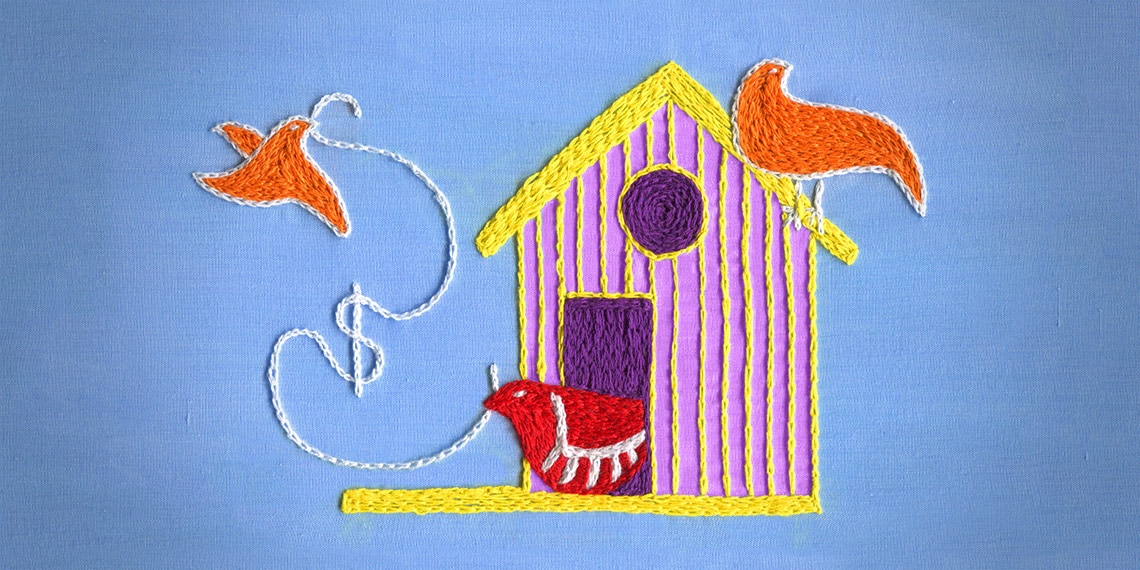
If you have young adult children starting out on their own or are the adult child of an elderly parent, you may be considering a joint checking account to help them monetarily. After all, you want to take care of your family—emotionally, physically and, often, financially.
A joint checking or savings account is one shared by two or more people. And it’s easy to see how it how it might help families sharing financial responsibilities. (Other types of accounts can also be operated jointly.)
“If relatives have frequent hospital stays or periods of incapacitation, a joint checking account can let you pay the bills and make sure everything keeps going smoothly,” says T. Eric Reich, CIMA, CFP, a financial advisor and president of Reich Asset Management in New Jersey. Reich says he typically sees clients consider joint bank accounts when they are trying to help elderly relatives.
Another advantage relates to survivorship. Typically when someone dies, their assets are frozen throughout the probate process, but “in a joint situation, only half of the joint account is frozen,” Reich notes. “You still have access to money to be able to help pay some of their expenses, so it’s not coming out of your own pocket while you’re waiting to get the estate settled.”
The major drawbacks of a joint checking account, Reich says, are all related to a common misunderstanding.“A lot of people think a joint checking account is 50/50,” Reich notes, “but really it’s 100/100.”
That means that since both people have full rights to the money, it’s perfectly legal for either party to withdraw all the money from the joint account at any time. Aside from the basic need to trust your cosigner, this creates other considerations:
Pros:
Estate planning. As noted above, bypassing the will and probate can be helpful in managing immediate expenses during an estate settlement. But if you have multiple heirs, take that into comnsideration during estate planning. Even if a will stipulates that an inheritance be split evenly among four children, for example, all of the money in a joint account will go to the one child on the bank account, despite the will’s directive. That might create complication or strife in the family.
Financial Education. If you’re the parent of a young adult child, you can help them make wise financial choices by monitoring the account. It’s possible to teach your kids wise financial habits when they’ve just started adulthood without being overbearing or paying for their lives entirely.
Cons:
Creditors. If either person who holds a joint account owes money—whether because of a car accident, a divorce, a legal action or other reasons—all the funds in the joint account are subject to creditors. This can be a particular issue for young adult children who haven’t yet proven themselves financially responsible or those who are compulsive spenders.
Financial aid. The assets in a joint checking account will count for more in the financial aid calculations for a college student than if the assets were held in a parent’s non-joint account.
Divorce. Similar to the financial aid situation, if either the adult child or parent on the account divorces their partner, then the money could be listed as an asset.
Elder Abuse. As of 2020, the CDC estimates about 1 in 10 people aged 60 and older experience elder abuse. About 90% of abusers are family members and 2/3 of perpetrators are adult children or spouses. A joint bank account could make the situation worse for an elderly parent. Visit the U.S. Department of Health and Human Services for more information on identifying and reporting elder abuse.
Even with the potential drawbacks, people utilize joint bank accounts because they need a way to connect their finances with their family members. But there are alternatives. An adult child can establish their own bank account, for example, and you can transfer money into the account as needed, Reich says.
For elderly parents, you could establish what is known as a convenience account. This type of account allows you to sign checks for the account holder, but nothing more, and you have no legal rights to the account.
Another option that might help an elderly relative is to employ a personal daily money manager, Reich suggests. That individual will work with an elderly relative to help pay bills or liase with insurance companies if they are no longer able to do so on their own. The Association of Daily Money Managers can help you locate someone locally.
You might also consider getting a signed power of attorney from your elderly parent or other relative, as that documentation gives you the legal right to take over all essential financial activities—not just the joint bank account—if your family member becomes incapacitated.
While taking care of your loved ones is essential, make sure you analyze all the complications and drawbacks of a joint bank account so you can make the right decision for you and your family.
Marcia Lerner lives in Brooklyn, New York, and writes about finance, health care and children's literature. Her articles and reviews have appeared in the New York Times and Proto magazine as well as many financial websites and magazines.
Illustrated by Carolyn Bouchard.
Are you prepared to talk with your aging parents about their needs and wishes? Get tips here.
Learn about joint accounts for newlyweds or for second marriages.
- https://www.investopedia.com/terms/j/jointaccount.asp
- http://www.thecollegesolution.com/why-college-savings-usually-wont-hurt-financial-aid-chances/
- https://www.nolo.com/legal-encyclopedia/convenience-accounts-powers-attorney.html
- https://pocketsense.com/can-joint-savings-accounts-grown-children-considered-part-marital-assets-1769.html
- https://www.nerdwallet.com/blog/banking/joint-checking-account/
- https://www.nextavenue.org/joint-bank-account-parent/

